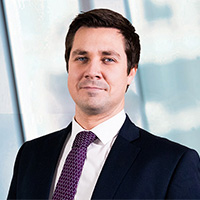Held at our newly refurbished London office on 4 November 2025, the event attracted over 100 delegates, including developers, contractors, consultants, and legal specialists. Through a series of interactive sessions and panel discussions, we examined the forces driving transformation and shared practical strategies for success.
Building Safety Act – From theory to reality
The Building Safety Act has moved beyond headlines into day-to-day reality. Our panellists highlighted the operational challenges of compliance, from navigating new duty-holder roles to managing golden thread requirements. The message was clear: early engagement and robust governance frameworks are essential. Organisations that invest in proactive risk management will not only avoid costly disputes but also build trust with stakeholders.
AI and prompt engineering – The next frontier
Artificial intelligence is no longer a distant concept; it is here, and it is changing the game. The session on AI explored how prompt engineering and automation platforms are streamlining processes, improving accuracy, and unlocking efficiencies in project delivery. Yet, technology is not a silver bullet. Panellists stressed the importance of human oversight and ethical governance to ensure outputs remain reliable and legally sound. The future lies in blending AI-driven tools with expert judgment to deliver predictable outcomes.
ESG – Balancing purpose and profit
Environmental, Social, and Governance (ESG) considerations are now central to procurement and project execution. Our discussion revealed a growing tension between sustainability commitments and commercial realities. The solution? Collaborative contracting and transparent reporting. By embedding ESG principles into contractual frameworks and supply chain relationships, businesses can meet stakeholder expectations without compromising competitiveness.
Financial resilience – Staying off the liquidation line
Economic uncertainty continues to cast a shadow over the sector. The panel on financial resilience examined early warning signs of distress, from persistent payment delays to scope creep. Experts emphasised the value of early dispute resolution mechanisms and collaborative contracting models in mitigating risk. In a market where margins are tight, foresight and flexibility are critical to staying solvent.
Beyond the sessions: Collaboration and connection
The conference was more than a series of discussions – it was a platform for collaboration. Delegates engaged with DWF specialists and industry peers, sharing experiences and forging connections that will shape future projects. This spirit of partnership reflects our belief that complex challenges demand collective solutions.
What this means for the industry
The insights from the day underscore a fundamental truth: adaptability is the new competitive advantage. Whether it’s embracing regulatory change, leveraging technology, or embedding ESG into strategy, success will depend on agility, collaboration, and innovation.
At DWF, we are committed to helping clients navigate this evolving landscape. Through our integrated legal and business services, we provide the expertise and tools needed to manage risk, unlock value, and deliver projects that stand the test of time.
Looking ahead
The conversations at our Construction Conference reaffirmed that the sector’s future will be shaped by those who embrace change. As we move into 2026, we look forward to continuing these dialogues and supporting our clients in building a resilient, sustainable, and technology-enabled industry.
Interested in learning more?
Explore our latest insights on construction law and innovation or contact our team to discuss how we can support your projects.
Find out more: Construction Dispute Resolution | DWF















